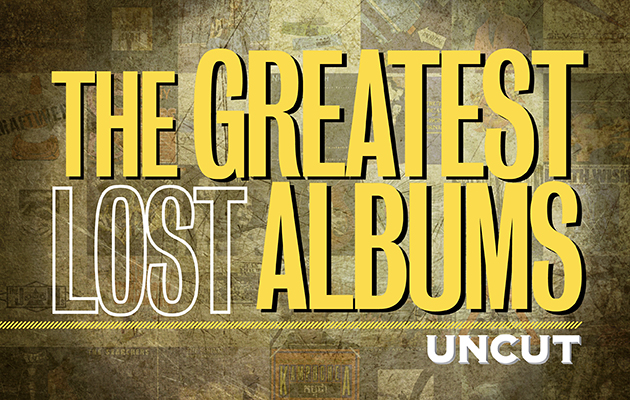It’s quite hard to imagine that such a thing as a Great Lost Album could still exist, at a time when everything seems available. But amazingly, there are albums by Neil Young, Van Morrison, The Who, David Bowie and even The Beatles which cannot be bought as a new CD or as a legal download.
Here, the Uncut team have exhaustively tracked down these extraordinary albums – all proper releases in their time, rather than fabled bootlegs of the Smile variety – that are not officially on sale right now. These records are the work of revered superstars, cult heroes and almost entirely forgotten foot soldiers of rock. Some have simply slipped off the radar; others are suppressed thanks to bizarre disputes and artistic whims. Some can be bought second-hand for a trifle, while others will set you back a small fortune.
All, we think, are worth tracking down – one way or another. Our treasure hunt ends with an in-depth look at one of rock’s most fraught masterpieces… Originally in Uncut’s May 2010 issue (Take 156), and updated for 2015!
______________________________
TIN MACHINE
Tin Machine II
LONDON, 1991
David Bowie had formed Tin Machine in 1988 with guitarist Reeves Gabrels and rhythm section Hunt and Tony Sales, indulging a shared love of dissonant garage-rock and to hell with the consequences. EMI duly dropped them on the eve of this second album. Yes, Hunt Sales’ vocals on “Stateside” and “Sorry” are two of the most excruciating moments in Bowie’s recorded career, but overall II was actually a better album than their debut. Gabrels’ splintered guitar work has depth and texture, with “Baby Universal” and “Goodbye Mr Ed” offered a return to Bowie’s more allusive art-rock imaginings. Its poor showing in the charts – it was his first album in 20 years to miss the UK Top 20; in the US it crawled to No 126 – has meant a lack of love on the reissue front, too.
EXPECT TO PAY: £20 for the CD. Less for the cassette…
______________________________
BILL DRUMMOND
The Man
(Creation, 1986)
Before he became The KLF’s money-burning dance-punk art-terror-theorist, the erstwhile visionary behind Liverpool’s Zoo label stepped out as an unabashedly Scottish singer-songwriter with this remarkable LP, created to mark his turning 33-and-a-third. Recorded in five days in a village hall in Galloway, The Man was a surprisingly great sounding LP (not so surprising when you realise his backing band is The Triffids), that found Drummond musing on life, love and rock’n’roll. Its most famous song is undoubtedly “Julian Cope Is Dead”, which saw him recounting his master plan to make The Teardrop Explodes bigger than The Beatles by killing the singer. Elsewhere, there was cosmic country, folk, Roxy-esque sax, Wall Of Sound pop, and a Robert Burns recital by Drummond’s preacher father. “The work of a complete nutter,” enthused Creation boss Alan McGee.
EXPECT TO PAY: Quite a lot – sellers are asking £30 to £50 online
______________________________
LOTION
Nobody’s Cool
(Spin Art/Big Cat, 1995)
New Yorkers Lotion were perpetually described – to their irritation, but with a degree of accuracy – as a cross between REM and Hüsker Dü. Their career encompassed a fine debut, Full Isaac (available on iTunes) and a brief cameo appearance on Buffy The Vampire Slayer. But while the bright and wry college rock of their second LP, Nobody’s Cool, didn’t quite match its predecessor, its current unavailability has resulted in a significant piece of literary ephemera being lost. Drummer Rob Youngberg’s mother was an accountant, and one of her clients, Thomas Pynchon, was implausibly coerced into providing sleevenotes. Pynchon’s essay touched on The Love Boat, The Jetsons and Bobby “Boris” Pickett’s “Monster Mash”. “Through-out this album,” he wrote, “beneath the formal demands of rock’n’roll as we have come to know it, between the metal anthems and moments of tonal drama, the darkest of surrealist lyrics, the most feedback-stricken, edge-of-chaos guitar passages, may also be detected the weird jiving sense of humor of a cruise combo.” Rock criticism’s loss, etc etc…
EXPECT TO PAY: Very, very little…


